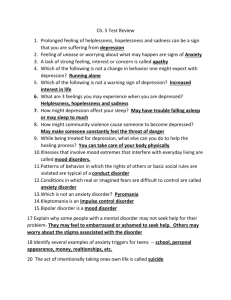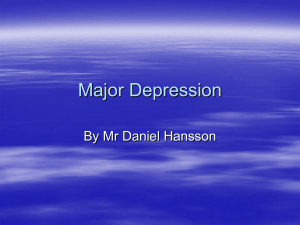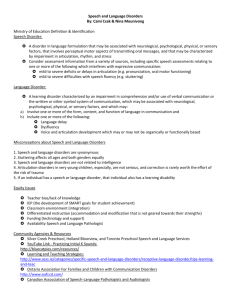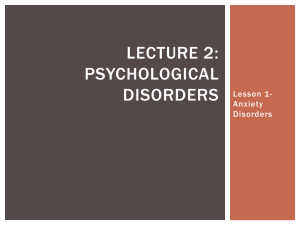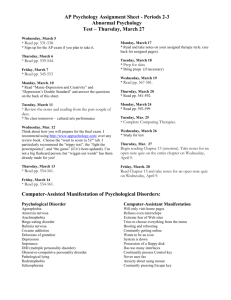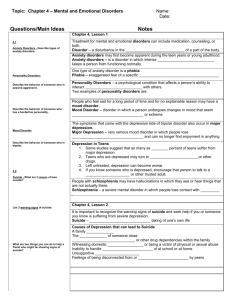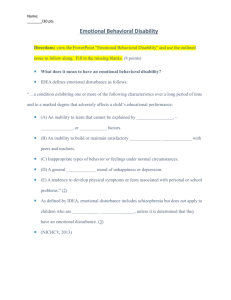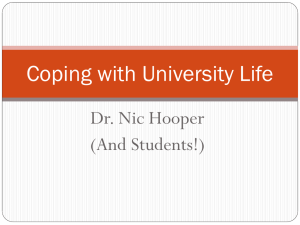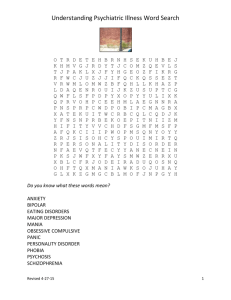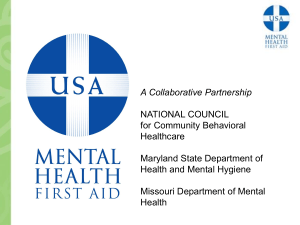Mental and Emotional Disorders Study Guide
advertisement
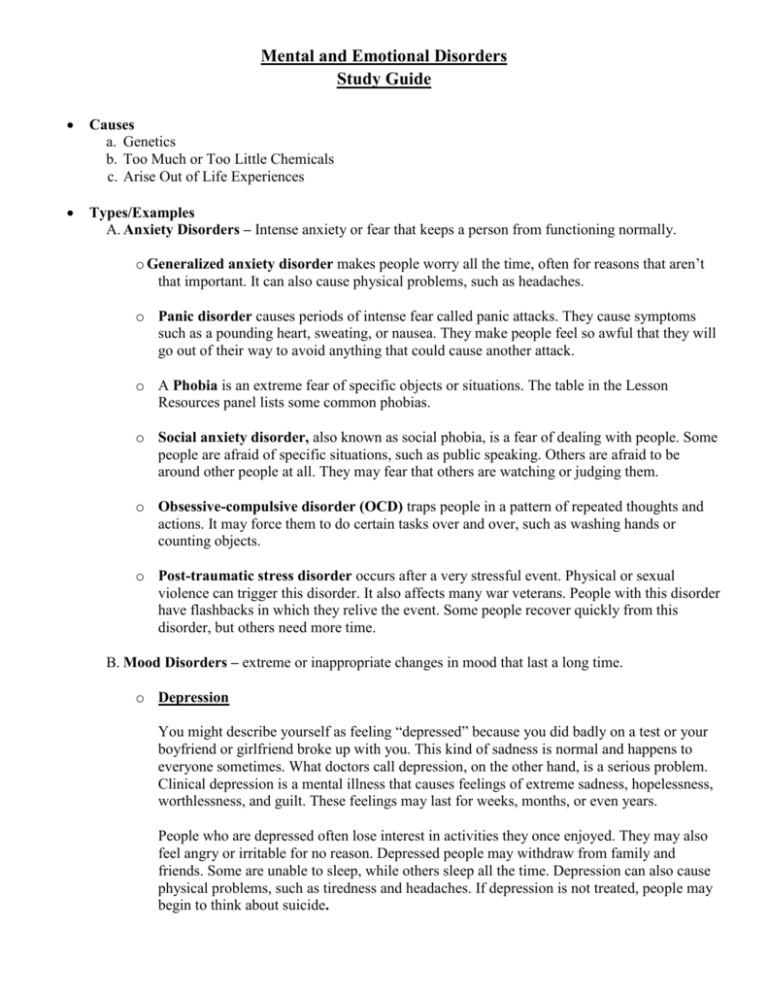
Mental and Emotional Disorders Study Guide Causes a. Genetics b. Too Much or Too Little Chemicals c. Arise Out of Life Experiences Types/Examples A. Anxiety Disorders – Intense anxiety or fear that keeps a person from functioning normally. o Generalized anxiety disorder makes people worry all the time, often for reasons that aren’t that important. It can also cause physical problems, such as headaches. o Panic disorder causes periods of intense fear called panic attacks. They cause symptoms such as a pounding heart, sweating, or nausea. They make people feel so awful that they will go out of their way to avoid anything that could cause another attack. o A Phobia is an extreme fear of specific objects or situations. The table in the Lesson Resources panel lists some common phobias. o Social anxiety disorder, also known as social phobia, is a fear of dealing with people. Some people are afraid of specific situations, such as public speaking. Others are afraid to be around other people at all. They may fear that others are watching or judging them. o Obsessive-compulsive disorder (OCD) traps people in a pattern of repeated thoughts and actions. It may force them to do certain tasks over and over, such as washing hands or counting objects. o Post-traumatic stress disorder occurs after a very stressful event. Physical or sexual violence can trigger this disorder. It also affects many war veterans. People with this disorder have flashbacks in which they relive the event. Some people recover quickly from this disorder, but others need more time. B. Mood Disorders – extreme or inappropriate changes in mood that last a long time. o Depression You might describe yourself as feeling “depressed” because you did badly on a test or your boyfriend or girlfriend broke up with you. This kind of sadness is normal and happens to everyone sometimes. What doctors call depression, on the other hand, is a serious problem. Clinical depression is a mental illness that causes feelings of extreme sadness, hopelessness, worthlessness, and guilt. These feelings may last for weeks, months, or even years. People who are depressed often lose interest in activities they once enjoyed. They may also feel angry or irritable for no reason. Depressed people may withdraw from family and friends. Some are unable to sleep, while others sleep all the time. Depression can also cause physical problems, such as tiredness and headaches. If depression is not treated, people may begin to think about suicide. o Bipolar Disorder Bipolar disorder, also known as manic-depressive disorder, causes extreme mood swings. People switch between low periods and high periods. Their low periods cause all the symptoms of depression. During their high, or manic, periods, people are in a constant state of excitement. They may feel either happy or irritable. They sleep less and have huge amounts of energy. They may also behave in reckless ways. However, in between the cycles, people may go through calmer periods. At these times, their behavior is fairly normal. C. Personality Disorders – having a rigid and unhealthy pattern of thinking, functioning, and behaving. A person may have trouble perceiving and relating to situations and to people. o Paranoid – People with this disorder often suspect others of wanting to harm them. They are suspicious and often hostile o Antisocial - People with this disorder have little respect for others. They may lie, steal, or harm people in other ways, including physically. They often get into trouble with the law. o Dependent - People feel or act afraid all the time; may look to others to take care of them. They do not like to make decisions for themselves. Often, they would rather put up with unkind or abusive treatment than be alone. D. Schizophrenia – a severe mental disorder in which a person may often have delusions, hallucinate. Signs and Symptoms of Mental and Emotional Disorders: *NOTE* It’s important to seek help right away for any of the following symptoms: Feelings of sadness, anger, anxiety, or fear that don’t go away Changes in eating or sleeping patterns Wanting to be alone all the time A feeling of being out of control Loss of interest in favorite activities Doing much worse in school all of a sudden Hearing voices Thoughts of suicide Treatment/Management (Most are treatable/recover, 2/3’s do not seek help.) a. Seek help and direction from a trusted adult or referral from doctor. b. Therapy/Family Therapy a. Psychologist b. Psychiatrists c. Clinical Social Worker c. Medications
